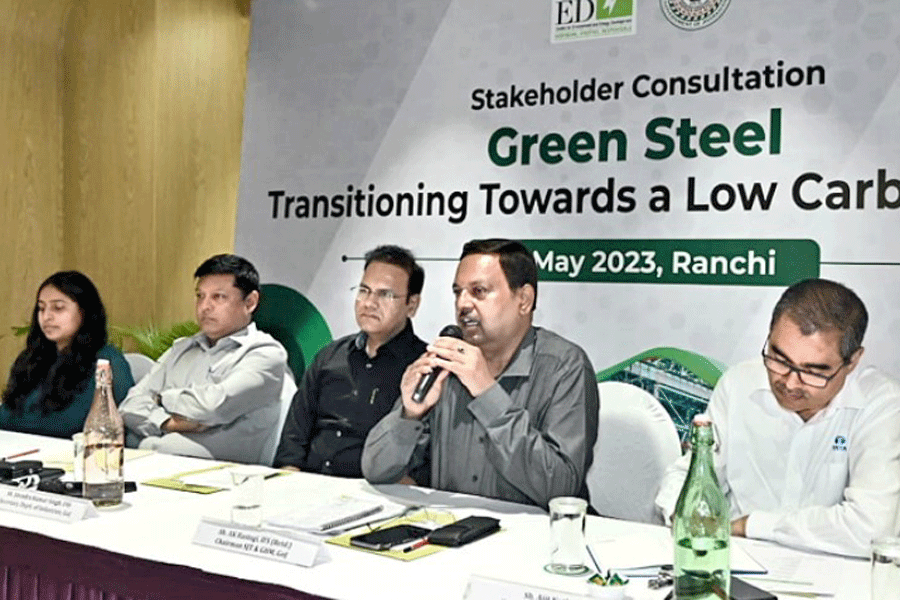Decarbonisation in the steel industry can contribute to a low-carbon economy for Jharkhand, feel stakeholders at a consultation on Green Steel: Transition to Low Carbon Future in Jharkhand recently.
The consultation was jointly organised by the task force on Sustainable Just Transition, Jharkhand government, and its technical partner Centre for Environment and Energy Development (CEED). It deliberated on the pathways to decarbonise the steel manufacturing sector to achieve the goal of reducing carbon emissions and moving towards sustainable energy transition and a net-zero scenario in the state.
“Jharkhand is one of the biggest producers of steel in India. Making steel is largely seen as a highly carbon-intensive activity. The energy consumption in the iron and steel industry is currently higher than any other industrial sector. Considering significant energy and natural resources consumed in the steel market's rapid expansion, the sector needs to change its business and operation activities according to the energy-efficient and lower carbon emission standards,” felt experts.
Jharkhand industry secretary Jitendra Kumar Singh said: “Steel is the most essential building and engineering material and one of the key resources of modern infrastructure. The state has a good presence of steel manufacturing industries, which require the adoption of sustainability-based business operations to achieve its economic goals and net-zero ambitions.”
He further added: “The steel sector should increasingly adopt decarbonisation measures as a key priority. The department is ready in creating an enabling framework, providing hand-holding support and guidelines to enable the sector to produce green steel to contribute to making a low-carbon economy in the state.”
Outlining the broader objectives of the consultation, the chairman of the task force on Sustainable Just Transition and retired senior forest official, A.K. Rastogi, said: “Jharkhand is an industrial state with a strong presence of hard-to-abate industries such as iron-steel, transport vehicles, cement and others. The task force has identified these sectors to sensitise the industry people and other stakeholders through a series of consultations on the need for decarbonisation and to take note of their concerns and aspirations in a mutually discussed manner.”
He also informed that the consultation with the steel segment will identify the possible intervention areas for a possible action plan and decarbonisation pathway which will contribute to strengthening the process of sustainable energy transition in the state.
Ramapati Kumar, CEO of CEED, felt that a comprehensive action plan is necessary to fully utilise the potential of green steel in Jharkhand. This includes creating a guiding pathway for decarbonising hard-to-abate sectors, particularly the iron and steel segment, and promoting collaboration between government, industry, techno-solution providers and think-tank to drive the cleaner energy transition process for a sustainable future.
The consultation mooted key ideas and solutions in the technical session with experts and industry representatives across the state.
The key pointers presented at the consultation were: futuristic industrial and manufacturing planning; encouraging decarbonisation measures; harnessing carbon capture, storage and utilisation technologies; the need for incentives for the industries; avenues of financial mechanisms; deployment of innovative technologies; and developing short and long-term pathways for the sector.











